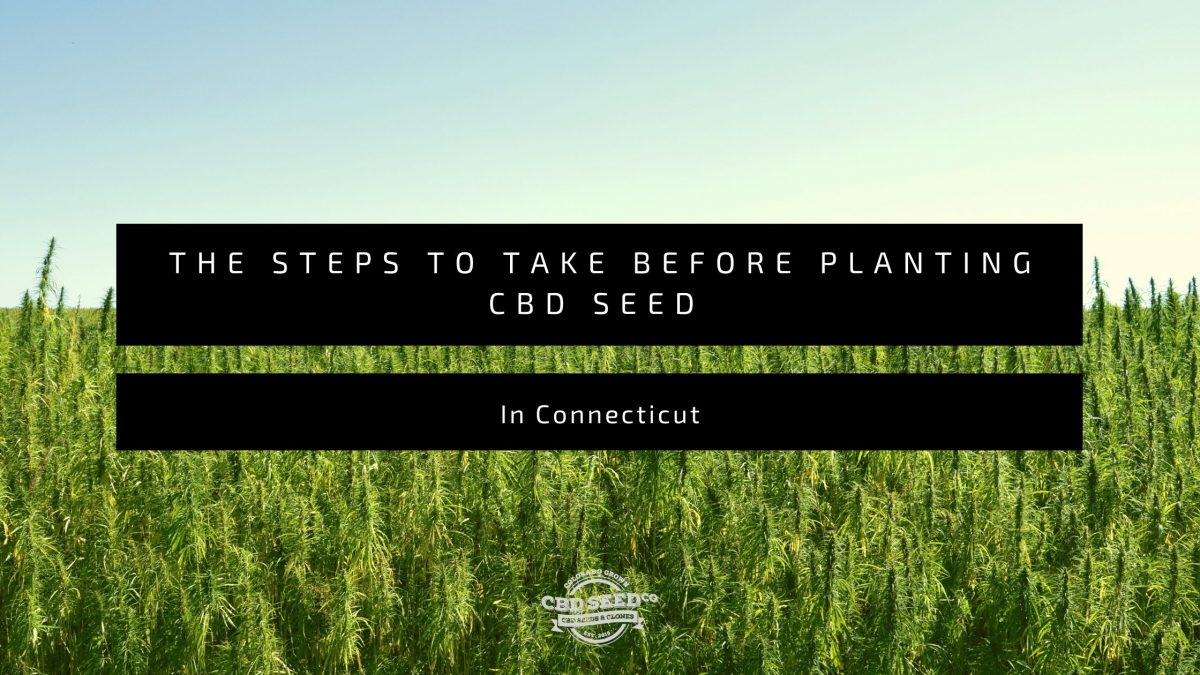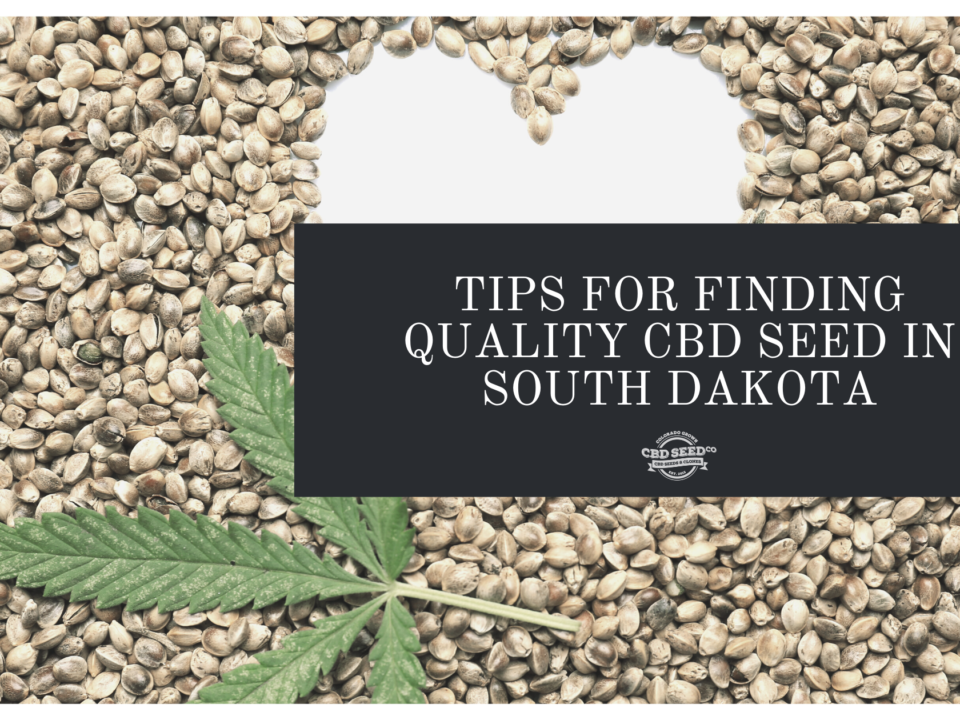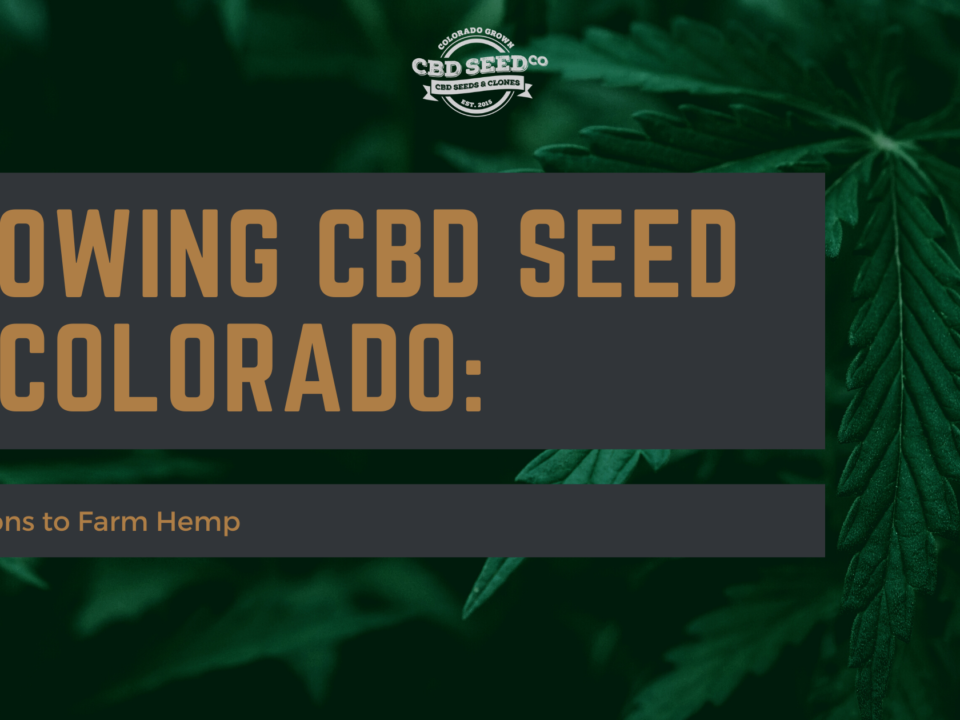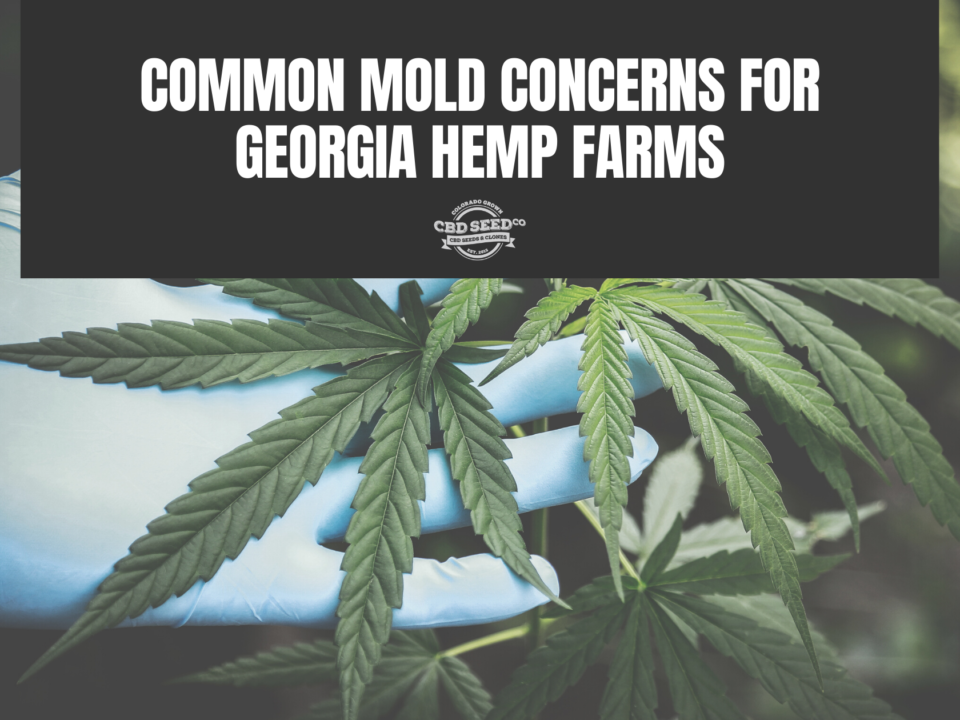The Steps to Take Before Planting CBD Seed In Connecticut

Growing CBD Seed: How to Start a Hemp Farm in California
September 14, 2020
How to Start a Hemp Farm in Arizona to Plant CBD Seed
September 22, 2020Now that hemp farming has become federally legal, many farmers throughout the Connecticut area are interested in joining this booming industry. While hemp has the potential to be really lucrative for farmers, there’s a lot you’ll need to learn in order to reap the rewards. Having a full understanding of the market and all the various agricultural requirements is crucial for long-term success. Before you find the right CBD seed for your hemp farm, here are the steps you’ll need to take.
How to Start Your Connecticut Hemp Farm for Planting CBD Seed
- Complete the necessary research required: Getting started with a new crop can be tempting and exciting for anyone. However, you’ll need to complete the necessary research required in order to ensure a successful harvest. Hemp cultivation can be complicated and requires a lot of knowledge and experience. Make sure to take the time to learn everything possible regarding farming needs, specific strain needs, and all the various regulations tied to growing this plant. Speaking to fellow farmers through online forums or joining Connecticut hemp associations can offer a great network for you to lean on. Another good resource is finding a reliable CBD seed supplier who can provide all the strain-specific information needed to grow your upcoming season.
- Narrow down your hemp farming goals: Did you know that hemp has over 25,000 different applications? That means that you’ll need to narrow down your hemp farming goals. Most farmers entering into the hemp industry are interested in growing hemp for CBD. If that’s the case for you, you’ll need to find high CBD hemp seeds. For farmers interested in growing hemp for producing building materials, textiles, paper, clothing, etc., you’ll need standard industrial hemp seeds.
- Start finding potential clientele: It’s always best to already have clients lined up before you begin harvesting your crops. Hemp is quite different than growing grain and corn since there is no silo where you can store your hemp post-harvest. Another advantage of finding your clients early is being able to deliver specific biomass– your clients may want a certain strain or even a different dominant cannabinoid. This can give you the competitive advantage of being able to deliver exactly what your clients need.
- Develop your CBD hemp business plan: While developing a business plan can be challenging for anyone in any industry, it’s an important step to make sure all of your bases are covered. It’ll prove a lot more beneficial to discover issues and potential problems during this planning stage rather than during your day to day operations. Always make sure that your hemp farming business plan includes a SWOT analysis, operating plan, sales strategy, hemp market overview, organizational structure, and comprehensive financial plan. The financial plan should consist of a funding analysis as well as a profit and loss forecast. When planning your finances, it’s recommended to keep your profit estimates modest. While hemp farmers can achieve $40,000 or more per acre, this isn’t a reasonable expectation for first-time farmers. Always feel free to utilize resources like hemp farmer associations for help with your business plan.
- Create a testing and compliance plan: One of the obstacles that hemp farmers face is the strict regulations placed on the THC content of crops by the USDA. Under federal law, hemp crops can only have 0.3% THC or less in order to remain legal. Maintaining frequent testing standards for compliance will be your sole responsibility. Having your CBD hemp tested a month after germination and about every two weeks is an ideal plan for Connecticut hemp farmers. Find an accredited lab for testing your crop’s THC content and make sure to keep up with your regular testing schedule especially when harvest gets closer.
- Develop your farm’s irrigation plan: Hemp cultivation can be successful with many different irrigation systems including pivot irrigation, subsurface irrigation, and more. Make sure to check out different systems and find the right one for your farm. Purchasing a new system can be expensive and should be included in your business plan.
- Get your hemp licensing: Connecticut has its own regulatory hemp program just like any other state. You’ll need to apply for hemp licensing before you’re able to grow hemp commercially. You can find the application, supporting paperwork, and fee requirements on their website here. Be aware that each state has different regulations for hemp cultivation– do your research to make sure your farm is compliant with local laws.
- Invest in hemp farming equipment and labor: Hemp requires specific equipment for certain cultivation tasks. Making sure you have all of your equipment set up before you get started can help alleviate stress and line you up for success. Hemp farming can also be quite labor-intensive, meaning you’ll want to hire the required labor for your farm. Hemp farms should always have daily checkups by your staff.
- Prepare your hemp fields: Hemp can be really sensitive to the nutrients in your soil. You’ll need to make sure that your soil conditions are ideal before you start planting. These requirements differ based on your region and climate– always research the specific changes required in order to make the right amendments to your soil. Having your soil tested prior to planting can help you ensure that you have the right levels of nutrients. Also, make sure your soil is properly drained and not compact before planting your CBD seed.
- Find the right CBD seed for your farm: Don’t make the mistake of purchasing cheap or unknown genetics. Inexpensive seeds often don’t contain the CBD content needed for your purposes. Purchasing unknown genetics poses endless problems since cultivation requirements differ from strain to strain. Make sure to purchase your CBD seed from the right supplier who can provide you will all the information needed to cultivate each strain.
Work with Connecticut’s Leading CBD Seed Supplier
CBD Seed Co. is honored to be the leading CBD seed supplier serving the state of Connecticut. Our team of hemp farmers is always here to answer any questions you have for starting a hemp farm. We proudly offer the highest-quality genetics bred for CBD production. For more information regarding the steps you need to take for establishing a successful farm, please contact us!





